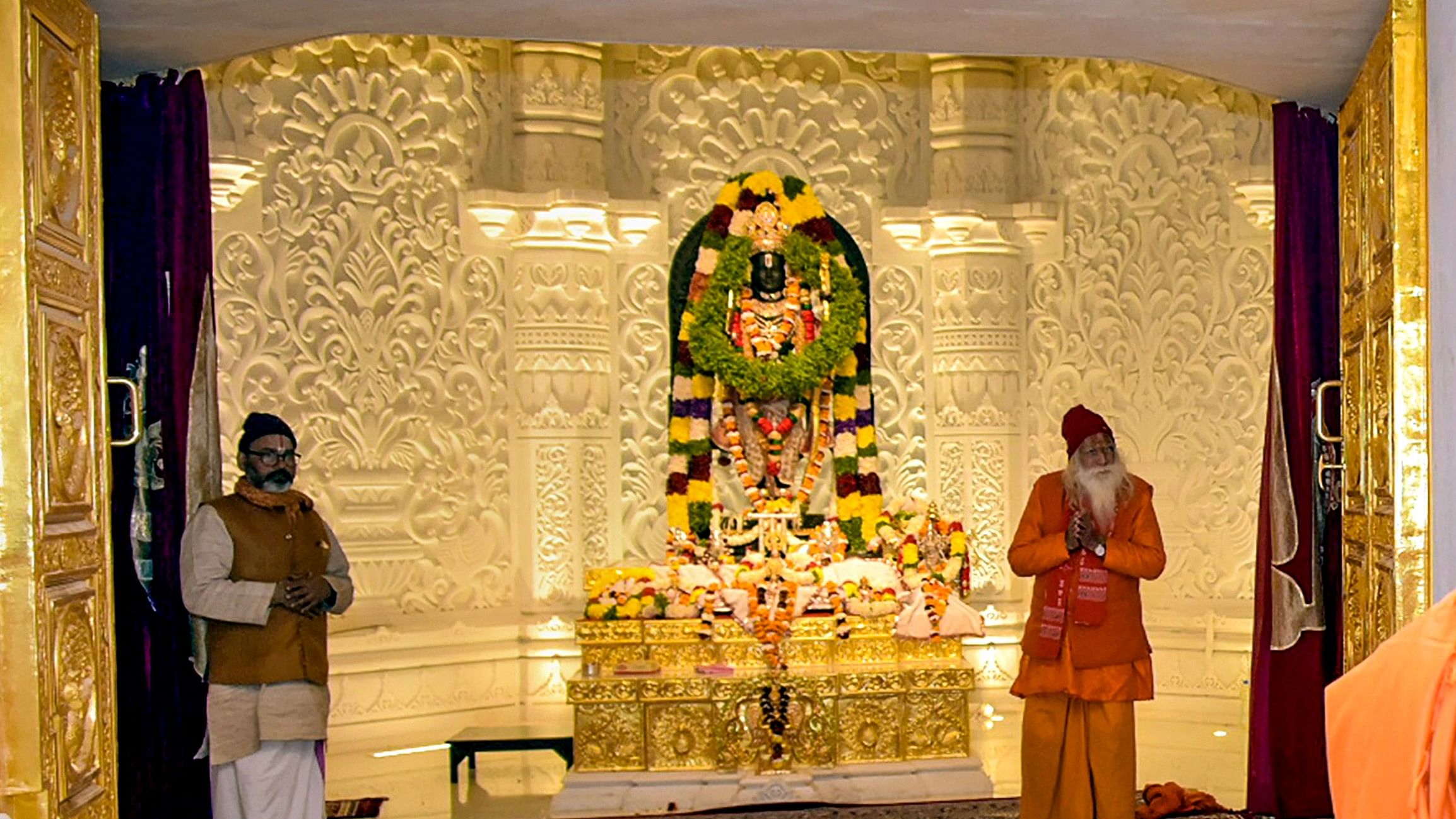
The newly consecrated 'Ram Lalla' idol at the Ram Janmabhoomi temple in Ayodhya, Monday, Jan. 29, 2024.
Credit: PTI Photo
New Delhi: The Tamil Nadu government on Monday told the Supreme Court that it had permitted performing 'puja' and other functions at 252 places across the state on January 22 during the consecration ceremony at Ayodhya's Ram temple, but denied it in 36 other places due to law and order issues.
A bench of Justices Sanjiv Khanna and Dipankar Datta allowed a plea by Tamil Nadu's Additional Advocate General senior advocate Amit Anand Tiwari for time and granted him 15 days to file a short affidavit in the matter.
The court, however, declined permission to writ petitioner, Chennai resident Vinoj, to file an amendment application or file rejoinder in the matter.
"There was some urgency (earlier), the order that we passed had its role," the bench said.
On January 22, the Supreme Court had taken exception to alleged oral orders issued by the Tamil Nadu government, restricting live telecast of 'Pran Partishtha' consecration ceremony of Ram temple at Ayodhya and performance of 'puja' and 'bhajan' in the state.
The court had said the state authorities can't reject the applications for holding 'puja' and other celebrations on the ground that the minorities are living in nearby localities.
The court declared reasons recorded for rejecting the applications for live telecast and other programmes "are not prima facie not justified and acceptable".
The petitioner had claimed the oral orders have been issued by the Chief Minister of State of Tamil Nadu on January 20, 2024 to the police department not to permit any kind of 'pujas', 'archanas', 'annadhanam' and 'live Telecast of Pran Prathishta', 'bhajans' and processions in the name of Lord Ram on the auspicious occasion of "Pran Prathista" of Lord Ram at the Ayodhya temple on January 22, in all the temples in the state irrespective of whether it is a private temple or a temple controlled by the TN HRCE Department, as violative of fundamental rights of the petitioner.
